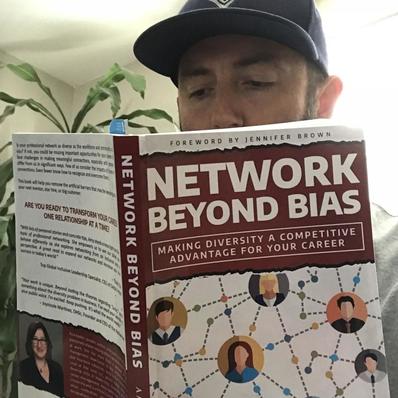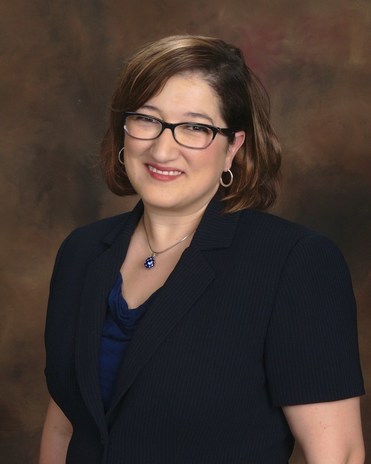 Developing a growth mindset requires one to read, to pursue knowledge from unfamiliar arenas and to keep pace with changes in the modern context. We had the pleasure of reading and reviewing Network Beyond Bias: Making Diversity a Competitive Advantage for Your Career by Amy C. Waninger. Amy asks many key questions, perhaps the most pointed being, “How diverse is your network?” Expanding your perspective will enable you to broaden your network which will unlock pathways to opportunity that you would otherwise miss. Through personal stories and some very practical tools, Amy helps the reader to navigate areas that many are uncomfortable with. Network Beyond Bias is a significant resource for growth minded professionals who want to thrive in the modern economy. The benefits of reading on broad topics as a growth minded professionalWe all know that we should read more, but with so many items competing for our time reading often draws the shortest stick. The benefits of reading have been told to us over and over. Harvard Business Review has a catchy title, For Those Who Want To Lead, Read, in which the author challenges that the history of success is full of, “Business leaders who believed that deep, broad reading cultivated in them the knowledge, habits, and talents to improve their organizations.” When selecting content for personal and professional growth, the material we choose should inform, challenge and expand our resource capacity. Author Amy C. Waninger provides an opportunity for those in a position of leadership to broaden their understanding and ability to navigate the complexities of diversity. The necessity of understanding the modern context as a growth minded professionalWhile diversity in the workplace is not a new reality, the modern context has brought to light broader perspectives. Amy asks four key questions in the introduction, one of which sticks out as pertinent to any person who wants to develop themselves and their ability to reach their potential in any industry, “Is your professional network as diverse as the workforce and community around you (p.5)?” If we are not aware of where we stand we stand to miss out significantly on opportunities to meet new people, learn new things and open new doors. Networking Beyond Bias helps brings modern topics to light and makes them approachable both by explaining them while sharing personal stories of victory as well as failure. Personal growth starts with a willingness to be a part of the solution and taking time to listen. The importance of understanding oneself as a growth minded professional Amy does a good job of walking the reader through confronting unconscious bias as a baseline for opening oneself to embracing diversity. In chapter two we see how our values, sense of self, perception of others and experiences are core to our interactions. “We define ourselves relative to others, and we evaluate others relative to ourselves (p.20).” Operating in this unconscious bias only limits our personal and professional growth. To break this cycle we have to intentionally confront this reality and transform how we think by expanding our information base through networking. Perhaps the two most applicable tools of Network Beyond Bias are two acronyms, first the C.H.A.M.P. network which starts in chapter 11 and the I.G.G.N.O.R.E. test from chapter 32. Networking in this fashion opens yourself to see how many resources you have in your existing circles that can help you develop greater diversity, growth and opportunity. Developing a diverse network as a growth minded professional starts here and nowNetwork Beyond Bias creates the case that diversity is the key to unlocking your potential and advancing your ability to navigate the modern economy. “Just as you wouldn’t put all of your financial eggs in one basket, you also need to diversify your professional relationships (p.93).” Whether you need to be convinced that your current network needs to be more diverse or need help in finding ways to expand, the C.H.A.M.P.S. test is a good place to start. This acronym stands for Customer, Hire, Associate, Mentor and Protégé. Chapters 11 through 16 break down these categories with practical insights to help you identify and build a more diverse network. Start with who you are and where you are. If you are willing to confront these two realities then the tools Amy provides in this book will serve to accelerate that process of growth. Opening yourself to new opportunities, asking questions of people you trust and listening have great power in further unlocking your potential. Awareness leads to understanding and action as a growth minded professionalThe sub-title for Network Beyond Bias is Making Diversity a Competitive Advantage for your Career. Diversity is a complex issue that extends through many sub categories from the primary segments that we are familiar with in relationship to discrimination such as gender, race, age, ethnicity and religion. Our willingness to understand is directly proportionate to our ability to succeed. “Invest in people and ideas outside your own norms to create opportunities for yourself and others (p.95).” In chapters 17 through 23 Amy walks through these categories with practical insights for professionals at any level. Chapter 21, Gender Identity: A Primer for People Who Just Don’t Get It, goes into greater detail on this topic including a lexicon, questions to avoid and ways to show respect to individuals. Amy shares her vision as well as lessons learned the hard way throughout the book. Even if you set out to understand and impact these issues, you will make mistakes, it’s how we deal with those events that makes an impact on our personal and professional trajectory. Honest and ongoing assessment is required to continue your success as a growth minded professionalWe discussed the C.H.A.M.P. network as the starting point for building a diverse network. In Chapter 32 Amy provides a grid that will help anyone answer the questions, “How diverse is your network?” Once you have your CHAMPs list, we can plug in the data to determine where we stand with regards to diversity by cross referencing with another acronym, I.G.G.N.O.R.E. To expand and develop a diverse network we need to understand where our CHAMPs fit into the categories of Industry, Generation, Gender / Gender Identity, National Origin / Native Language, Sexual Orientation, Race and Ethnicity. The final E in IGGNORE is for Exchange, this is where we determine the depth of these relationships. Exchange measures how deep we have shared personal stories with these persons, “Do you know the values, challenges and worldviews that make your CHAMPs who they are (p.198)?” Knowing your network starts the process of being able to expand your network as well as your pathway to long term success. Growth minded professionals see the value in engaging diversity and inclusionIf you feel like the world is changing, you are correct. One of the few constants is that everything is changing. The rate of change is increasing exponentially. Professionals at every level can lead at any level, which is also the name of Amy’s organization (see more at leadatanylevel.com). This organization, “Promotes in-the-trenches leadership, diversity and inclusion, and career management through mentoring, public speaking engagements, and other offerings.” Understanding the evolution of diversity enables professionals to engage the marketplace and leaders to navigate the workforce with success. Chapter 31 provides Seven Questions for Self-Reflection which should be referenced on a regular basis as well as a guide to Recovering from Honest Mistakes which again includes a personal story from Amy. Network Beyond Bias reminds us to recognize the value to ourselves and others by engaging diversity. In writing this book, Amy has provided a roadmap to personal and professional development through the rewarding subject of workplace inclusion. Resources for professionals wanting to learn more about diversity and inclusion1. Review our interview with Amy C. Waninger 2. Invest in a copy of Network Beyond Bias 3. Connect with Amy on social media 4. Follow the Lead At Any Level Blog
1 Comment
|
AuthorThoughts on personal and professional development. Jon Isaacson, The Intentional Restorer, is a contractor, author, and host of The DYOJO Podcast. The goal of The DYOJO is to help growth-minded restoration professionals shorten their DANG learning curve for personal and professional development. You can watch The DYOJO Podcast on YouTube on Thursdays or listen on your favorite podcast platform.
Archives
March 2023
Categories
All
<script type="text/javascript" src="//downloads.mailchimp.com/js/signup-forms/popup/unique-methods/embed.js" data-dojo-config="usePlainJson: true, isDebug: false"></script><script type="text/javascript">window.dojoRequire(["mojo/signup-forms/Loader"], function(L) { L.start({"baseUrl":"mc.us5.list-manage.com","uuid":"b9016446bd3c6a9f0bd835d4e","lid":"83282ffb9e","uniqueMethods":true}) })</script>
|
Jon Isaacson |
Connect. Collaborate. Conquer.
© COPYRIGHT 2015. ALL RIGHTS RESERVED.
|



 RSS Feed
RSS Feed